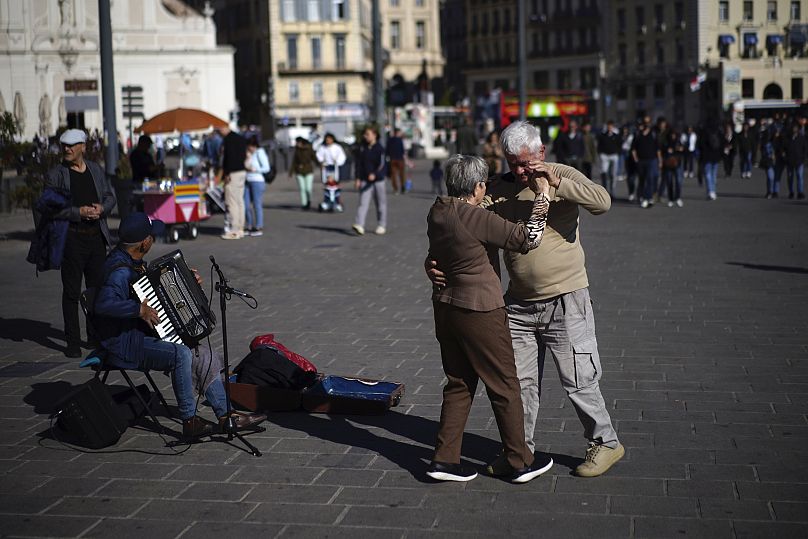Unvaccinated British tourists can travel to France if they take a Covid test first.
Paris will welcome tens of thousands of football fans for the UEFA Champions League final this weekend.
 ADVERTISEMENT
ADVERTISEMENT
 ADVERTISEMENT
ADVERTISEMENT
If you’ve bagged a hot ticket to see Liverpool take on Real Madrid on Saturday (28 May) - or have a more relaxing trip to France lined up - there are still some Covid travel restrictions in place.
Unvaccinated Brits and EU citizens can visit the country as long as they test negative for the virus.
France moved the UK onto its green list at the end of March, meaning that unjabbed travellers can show a PCR test taken within 72 hours or a lateral flow test taken within 48 hours to enter the country.
Eurostar bookings and flights to Paris rose as a result, and soared even higher after the semi-finals at the start of this month, according to travel search engine KAYAK.
It found flight searches from Liverpool to Paris increased by more than thirty-three fold right after the Reds sealed their place in the final.
Whether you’re backing Jurgen Klopp’s men, Real, or are simply after some fine wine and French sunshine, here’s what you need to know.
What are the rules for vaccinated travellers?
Fully vaccinated Brits only need to show their NHS vaccination certificate to enter France.
From 31 March UK travellers are no longer required to sign a “declaration sur l’honneur”. This sworn declaration that you are not experiencing COVID-19 symptoms was previously required to enter the country.
"No negative test on departure is required for vaccinated travellers within the meaning of European regulations," says a statement from the French Ministry.
"These travellers must present proof of vaccination to the transport company and to the border control authorities. No measures (tests, isolation) are in force upon arrival in metropolitan France."
Do you need to be boosted to be fully vaccinated?
UK travellers hoping to visit France this summer may still have to take a Covid test if they have only received their primary vaccinations however.
All adults who had their second dose more that 9 months ago will not be considered fully vaccinated, as per the EU Commission’s tightening of “full vaccination”.
As of 14 March, you no longer need to show your vaccination certificate to enter venues in France. Face masks are also no longer required at indoor venues but they are necessary on public transport.
What are the rules for children?
Children under 12 do not need to be vaccinated or take Covid tests in order to visit France.
Teenagers aged 12-17 are subject to the same rules as adults, which means that if they are unvaccinated they will need to do a PCR or lateral flow test before travelling to the country.
What happens if you test positive for COVID in France?
If you’re unlucky enough to catch Covid while on holiday in France, you’ll need to self-isolate.
Fully vaccinated people - or those who have recovered from the virus in the last four months - must stay inside for seven days from the day on which you first develop symptoms or test positive. This can be cut to five days with a (supervised) negative PCR or antigen test on the fifth day.
It’s a stricter rule than in the UK, and applies to children under the age of 12 too.
According to UK Foreign Office advice, you will have to extend your stay until the end of your isolation period, with no financial help from French authorities.
It means a flying visit to the Stade de France - Europe’s seventh largest stadium with a seating capacity of 80,000 could end up becoming a lot longer and more costly.












